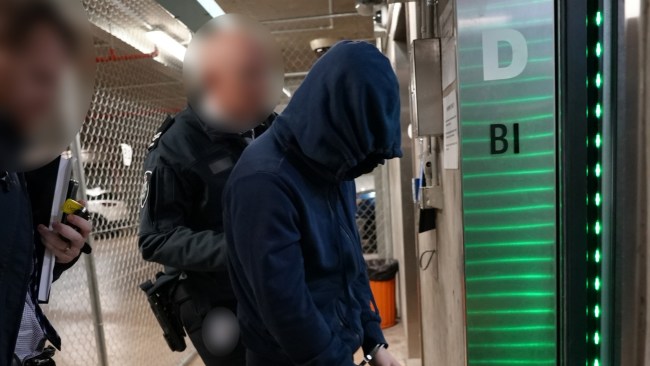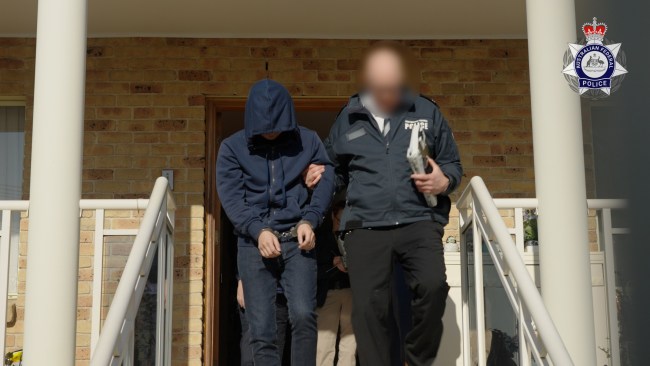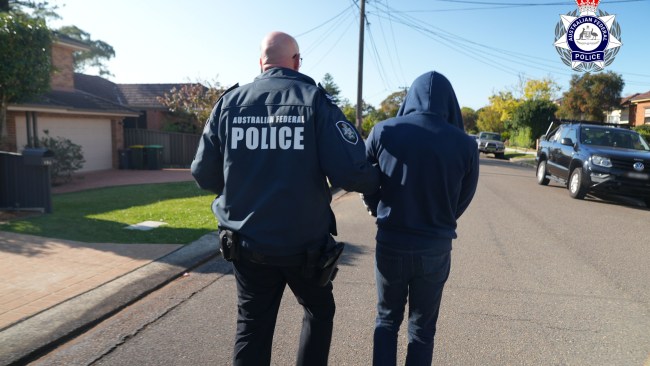By Sean Boynton Global News
Posted November 10, 2024

WATCH: After being injured in Canada's longest, most expensive war effort, one veteran created and fundraised an exhibit to help ensure the efforts of those who served — and the memories those who died — aren't forgotten. Mercedes Stephenson explains
A Canadian Forces veteran who served in Afghanistan says Canada should be a “world leader” on alternative therapies for treating veterans’ post-traumatic stress disorder and other post-combat trauma, including the use of psychedelics.

Retired MCpl. Gordon Hurley says psychedelic treatments such as ketamine and psilocybin, or “magic mushrooms,” can give veterans “a breath of relief” from their trauma or addictions, pointing to his own experience, and is calling for further study and coverage for physician-assisted therapies.
“I really think we’re in a unique position as a country, with such a liberal view on health care and life, that we should be able to be a world leader in providing alternative therapies,” he told Mercedes Stephenson in an interview that aired Sunday on The West Block ahead of Remembrance Day.
“We should be doing the same thing with our veterans just how you send us to war. A majority of the time we’re saying, ‘Send me, send me.’ We can do the same thing with these types of treatments.”
Hurley deployed to Afghanistan in the summer of 2008, just 15 months after joining the military and completing basic training. He was injured by an improvised explosive device but returned to the battlefield just three weeks after surgery.

2:21
More than 40,000 Canadians served in Afghanistan, many on multiple tours during the 20-year global War on Terror, and 165 Canadian Armed Forces members died there.
Many veterans of that war returned to Canada suffering not just from PTSD but also traumatic brain injuries and effects from toxic burn pit exposure, among other traumas.
Research has suggested recent veterans have had a higher rate of mental health and addiction issues compared to older veterans and the overall Canadian population.
Veterans Affairs Canada is conducting research and clinical trials into the use of ketamine as a treatment for traumatic brain injuries and depression, but has yet to launch a similar project on psilocybin. Independent studies have been launched across Canada in recent years into psychedelic treatments
A Senate committee report last December urged the federal government to “immediately” conduct a “major research program” into how psychedelics can help veterans suffering from PTSD. The report said research already exists into the effectiveness of such treatments and warned Canada is falling behind other countries in studying them.
The United States has funded research into psychedelic treatments for veterans, but the U.S. FDA this year rejected an approval for MDMA treatment, calling for further study.
Briefing notes prepared for the veterans affairs minister last year say the department only provides financial coverage for treatments that are supported by solid research, and says approved psychological and psychiatric treatments are the “first-line evidence-based” approach to treating PTSD and other mental issues.

2:01
“Western treatment is completely fine,” Hurley said. “There’s nothing wrong with prescription drugs or SSDIs (antidepressants), whatever is going to work to get that person off the ledge is worth it. But there are other treatment options.”
Hurley said he travels to Mexico to receive treatment through psychedelics through a clinic run by Canadian doctors, and touted their effectiveness.
Besides psychedelics, Hurley also pointed to a treatment known as stellate ganglion block, which numbs nerves in the neck and “basically resets your nervous system,” he said. The treatment has been studied at multiple Canadian hospitals and universities and has been called “miraculous” in treating PTSD.
“To get that initial breath and that initial pause where they don’t have the cravings for their addiction, or they don’t have the annoyances of trauma, of post-traumatic stress, of perhaps being too freaked out to go into public spaces or noises and all these other detriments to the veteran’s life … we could be fixing with different types of treatment,” he said.
Hurley said the government should particularly cover assisted treatment programs that allow doctors to work with patients and ensure veterans are taking the proper treatments and dosages.
“The doctor is going to have specific training to deal with psychedelics and how that integrates into a person’s life,” he said.
“We’re so new to it. It’s not anyone’s fault, but we should really be ahead of the curve on this.”
Story by Maya Goldman

Psychedelic therapy provides hope for veterans
Veterans are campaigning to take psychedelic therapy for post-traumatic stress disorder mainstream, despite the Food and Drug Administration's rejection of an ecstasy-based therapy in August.
Why it matters: About 29% of veterans who fought in Afghanistan and Iraq will have PTSD at some point in their lives, according to the Department of Veterans Affairs. Veteran suicide rates are also higher than in the general population.
"The thirst is very palpable among our generation" of veterans for alternative mental health therapies, Allison Jaslow, CEO of Iraq and Afghanistan Veterans of America, told Axios.
Catch up quick: Psychedelics like magic mushrooms, LSD and ecstasy can alter a person's state of mind and cause hallucinations.
It's been nearly impossible to research their effects, because they've been criminalized and classified as controlled substances since 1970.
But interest in psychedelics' potential to treat mental health conditions — particularly in veterans — has grown in recent years.
The FDA in 2017 granted fast-track review of a PTSD treatment that mixes ecstasy with talk therapy.
The VA started funding research into psychedelic therapies this year. Congress also passed bipartisan legislation directing the Pentagon to study the treatments.
In the meantime, more than 1,200 veterans traveled to other countries for psychedelic therapies through one nonprofit alone, said Jesse Gould, founder of that organization, Heroic Hearts Project.
But the FDA in August rejected the therapy it had originally fast-tracked, following an independent review that highlighted concerns like missing safety data and allegations of misconduct in clinical trials.
Zoom in: The decision felt like a major setback to veterans.
"It was emotionally just gut-wrenching, thinking about all of those veterans, and all the other people, for that matter, that were just really counting on being able to access this as a solution for their debilitating PTSD," said Juliana Mercer, a Marine Corps veteran and director at veterans advocacy group Healing Breakthrough.
The FDA rejection pushes mental health progress back years, added Gould, a former Army Ranger. It "indicates to veterans that they are not being listened to and they're not a priority."
Where it stands: Veterans are continuing to work toward broadening access to psychedelic therapies.
State-level action is also picking up. Oregon and Colorado have legalized psychedelic mushrooms for therapeutic use. But Massachusetts voters last week rejected a ballot proposal to legalize psychedelics.
What's next: The company behind the rejected ecstasy-based therapy now has a new acting CEO and chief medical officer, and it announced last month that it will run a new clinical trial on the PTSD treatment.
The VA has reportedly said it would consider funding the trial.
The FDA also fast-tracked review for a psychedelic mushroom therapy, though the company running that trial announced recently that it's delaying a key data release.
The new clinical trials will likely take at least two more years, Mercer predicted.
But the extended timeline means the VA "is going to be more prepared to effectively roll out a psychedelic program," she said. "I'm choosing to look at that as a silver lining."
Allan Rose Hill
Mon Nov 11, 2024
BOING!BOING!

image: Deep Desert Photography/Shutterstock (manipulated)
Zach Skiles is a veteran and clinical psychologist who, informed by his own experiences, is helping other veterans deal with PTSD, depression, and drug addiction. As a researcher with University of California at San Francisco, Skiles leads veterans through psychedelic experiences to help alleviate some of their suffering. The participants are first given ibogaine—a natural stimulant with psychedelic properties found in the West African shrub iboga. After a long "group healing" session, they are administered 5-MeO-DMT, an extremely powerful and short-lasting psychedelic found in the venom of the Sonoran Desert toad. (Both compounds can also be synthesized in a laboratory.) Unfortunately. both of these compounds are illegal in the United States so the veterans must travel to Mexico for the actual treatments. In honor of Veteran's Day, the always-excellent Microdose republished Jan C. Hu's 2021 interview with Skiles:
What aspects of psychedelic therapy might help treat veterans in particular?
In treating PTSD, psychedelics enhance your ability to bring up trauma and simultaneously see it from different angles. Everything feels new, more revelatory and connected. There's the ability to take a step back and experience something in a totally new way.
One of the cooler things about psychedelic assisted therapies is you're not only getting those cognitive pieces, but you're also getting somatic, cathartic experiences at the same time. For people who've experienced sexual assault or combat exposure, you cut off a lot of sensation from your body and reconnecting to it is actually one of the main goals of all therapies. Having that experience along with these cognitive pieces is something that they call a codex condensed experience — it's happening in different constellations of the mind and body[…]
These therapies aren't legal in the U.S. What drove you and other vets to seek out these experiences in Mexico?
There's a bit of desperation; people have to leave the country to be able to get these therapies. These are folks who have spent careers in the U.S. Special Forces, with blast injuries or lesions on their brain. It's a group of folks who have tried every single therapy that's offered in the United States and have come up wanting more. They had to leave the country in order to have a therapeutic experience, and not be arrested for it.
It's important to give guys an ability to have the most up to date therapeutic access, but in the U.S.; it's also important for this to become regulated. We operate in the underground because that's the only place we can do this kind of thing.
Previously:
• FDA denies approval of MDMA-assisted therapy for PTSD
• These psychonauts are in training to take DMT trips that last hours or even days and report back… for science
• 'Please refrain from licking' toads, says National Park Service in unusual warning




